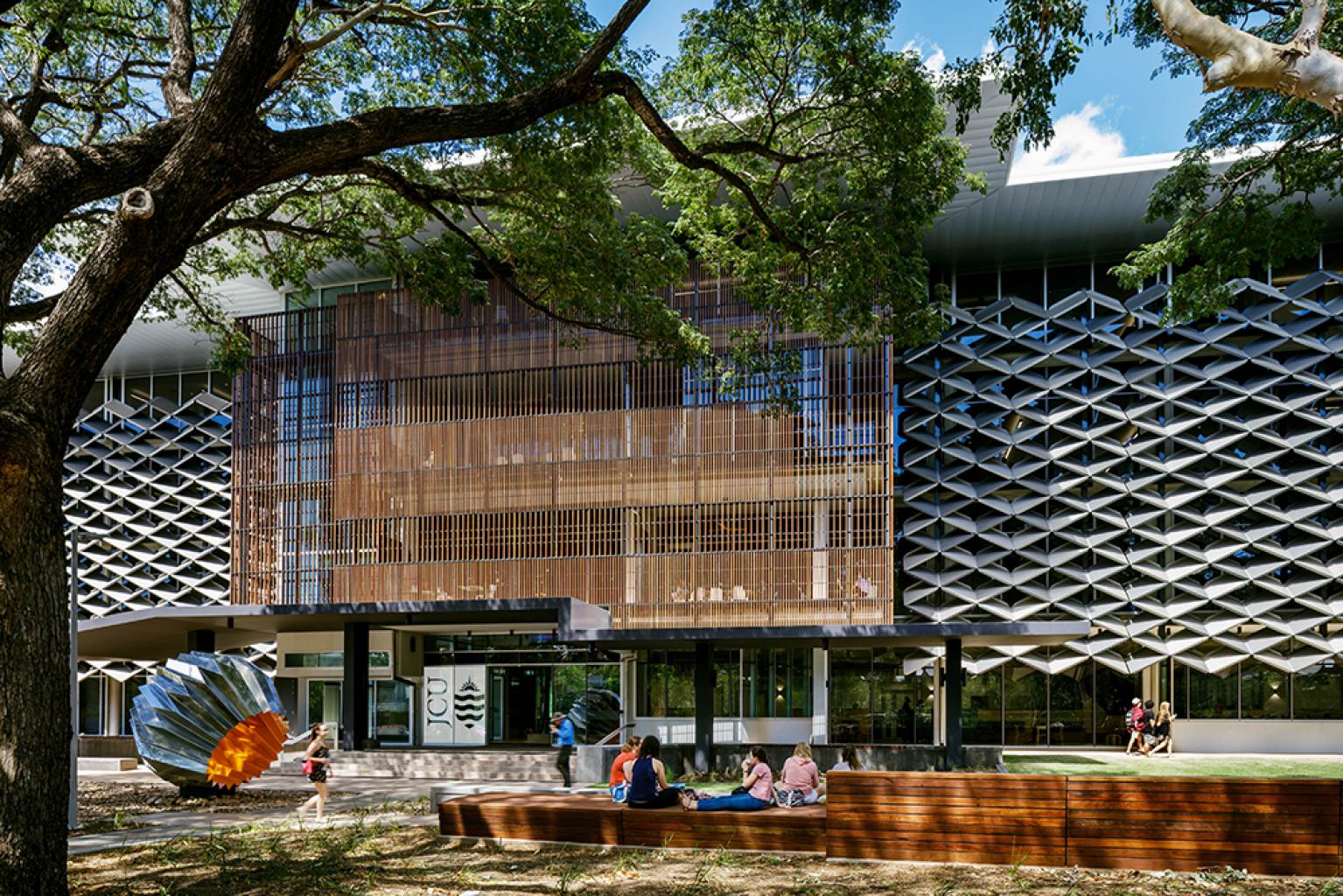 James Cook University Australia
James Cook University Australia
15,000
Number of Students
1,800
International Students
124
Number of Programs
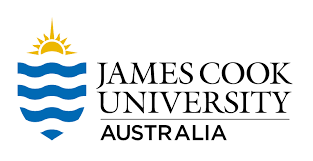
University Description:
Your world-class education begins here. Ranked in the top 300 universities in the world*, JCU provides world-class facilities, career-focused courses, and leading research excellence across two campuses in Townsville and Cairns. JCU students participate in hands-on learning in unique and spectacular locations including the Australian Outback and the UNESCO World Heritage-listed rainforests of the Wet Tropics and the Great Barrier Reef.
The international student populations in Cairns and Townsville are diverse and close-knit. Combined with a welcoming local community, international students are encouraged to become part of the local community and participate in Australian life through pursuing opportunities to enjoy a richly rewarding social and cultural life and experience indigenous cultures.
* Times Higher Education University Rankings 2022
Note: Business subjects run on a trimester model. All other subjects are on the semester model.
Term system & start dates:
Bachelor: Semester
- 1. Term Feb to Jun
- 2. Term Jul to Nov
Master: Semester
- 1. Term Feb to Jun
- 2. Term Jul to Nov
Download documents:
Related links:
Bachelor: Semester
- 1. Term Feb to Jun
- 2. Term Jul to Nov
Master: Semester
- 1. Term Feb to Jun
- 2. Term Jul to Nov
University Facts
University Description
Your world-class education begins here. Ranked in the top 300 universities in the world*, JCU provides world-class facilities, career-focused courses, and leading research excellence across two campuses in Townsville and Cairns. JCU students participate in hands-on learning in unique and spectacular locations including the Australian Outback and the UNESCO World Heritage-listed rainforests of the Wet Tropics and the Great Barrier Reef.The international student populations in Cairns and Townsville are diverse and close-knit. Combined with a welcoming local community, international students are encouraged to become part of the local community and participate in Australian life through pursuing opportunities to enjoy a richly rewarding social and cultural life and experience indigenous cultures.
* Times Higher Education University Rankings 2022
Note: Business subjects run on a trimester model. All other subjects are on the semester model.
Termsystem:
Semester (Bachelor)Bachelor Terms Start/End:
- 1. Term Feb to Jun
- 2. Term Jul to Nov
Termsystem:
Semester (Master)Master Terms Start/End:
- 1. Term Feb to Jun
- 2. Term Jul to Nov
Visa Information:
Student visa https://immi.homeaffairs.gov.au/visas/getting-a-visa/visa-listing/student-500#HowToWhy should you come and study with us?
North Queensland offers a unique combination of stunning climate, pollution-free environment, multicultural population, and a significantly lower cost of living than Australian cities such as Brisbane, Melbourne and Sydney. Our regions are one of Australia’s – and the world's – leading hubs for coast and tropical science and environmental studies, so if you’re interested in the future of the planet, there are few better places to study.Our courses are designed to help you succeed in the global workforce and will prepare you for a career you with adventure, skills and impact. JCU produces research of excellence and high impact, particularly on issues of importance to the Tropics. JCU is rated as world-class or better in 38 areas of research*, including No.1 in the world for Marine Biology, No.2 in the world for Biodiversity Conservation Research**, No.25 in the world for Ecology, and in the top 75 in the world for Geography and Mining and Mineral Engineering***.
JCU’s research centres, including the Australian Institute of Tropical Health and Medicine, ARC Centre of Excellence for Coral Reef Studies, and the Cairns Institute, conduct internationally recognised research in fields including ecology and environment, plant and animal science, geosciences, coral reef science, tropical health and medicine, and tourism.
*Excellence in Research Australia 2018, **CWUR 2017 Rankings, *** Academic Ranking of World Universities, 2021
Study opportunities:
Awarded 5 stars for student support (Good Universities Guide), we offer a range of student support services to help you settle into life in Australia. JCU’s International Student Support Team of dedicated and experienced staff assist international students prior to arrival, and help with orientation and transition to life at JCU.JCU offers a variety of services to all students to ensure you can stay ahead of your studies and career, all while having fun on-campus in the process including: academic support, learning skills, sporting facilities, counselling, AccessAbility Services, Careers and Employment, JCU Student Association, Student Centre and the Student Mentor Program
Scholarship possibilities for international students:
There are many grants, scholarships and bursaries available to assist you financially with your studies. These include the JCU International Excellence Scholarships and JCU International Merit Stipend. There are a range of additional scholarships offered by the Australian Government and by Australian and international public and private organisations. We encourage you to browse the scholarship listings on our website to find out more.JCU is an accredited educational provider for the Canadian Student Loan program and the US Federal Aid program, as well as for some loan programs in Europe including Denmark, Germany, Norway and Sweden.
Application Deadline:
Semester1 - 30 November prior year
2 - 30 June
Trimester
1 - 21 January
2 - 6 May
3 - 6 August
BU and BX coded business subjects only offered in trimester mode
Application requirements:
• Verified copies of your transcripts of records (incl. stamp and signature of issuing institution)• Copy of valid passport
• Verified copy of your English Language certificate, e.g. TOEFL, IELTS, DAAD
• Application Form JCU
Orientation:
https://www.jcu.edu.au/students/academic-calendars/academic-calendars-2022/2022-calendars-and-important-datesExamperiod:
https://www.jcu.edu.au/students/academic-calendarsAccessibility:
YesWorking while studying:
While studying, you can work up to 20 hours per week (on-campus or off-campus) during the semester and full-time during the semester break. This can be a great way to find study-related work or simply pay for your lifestyle in Australia.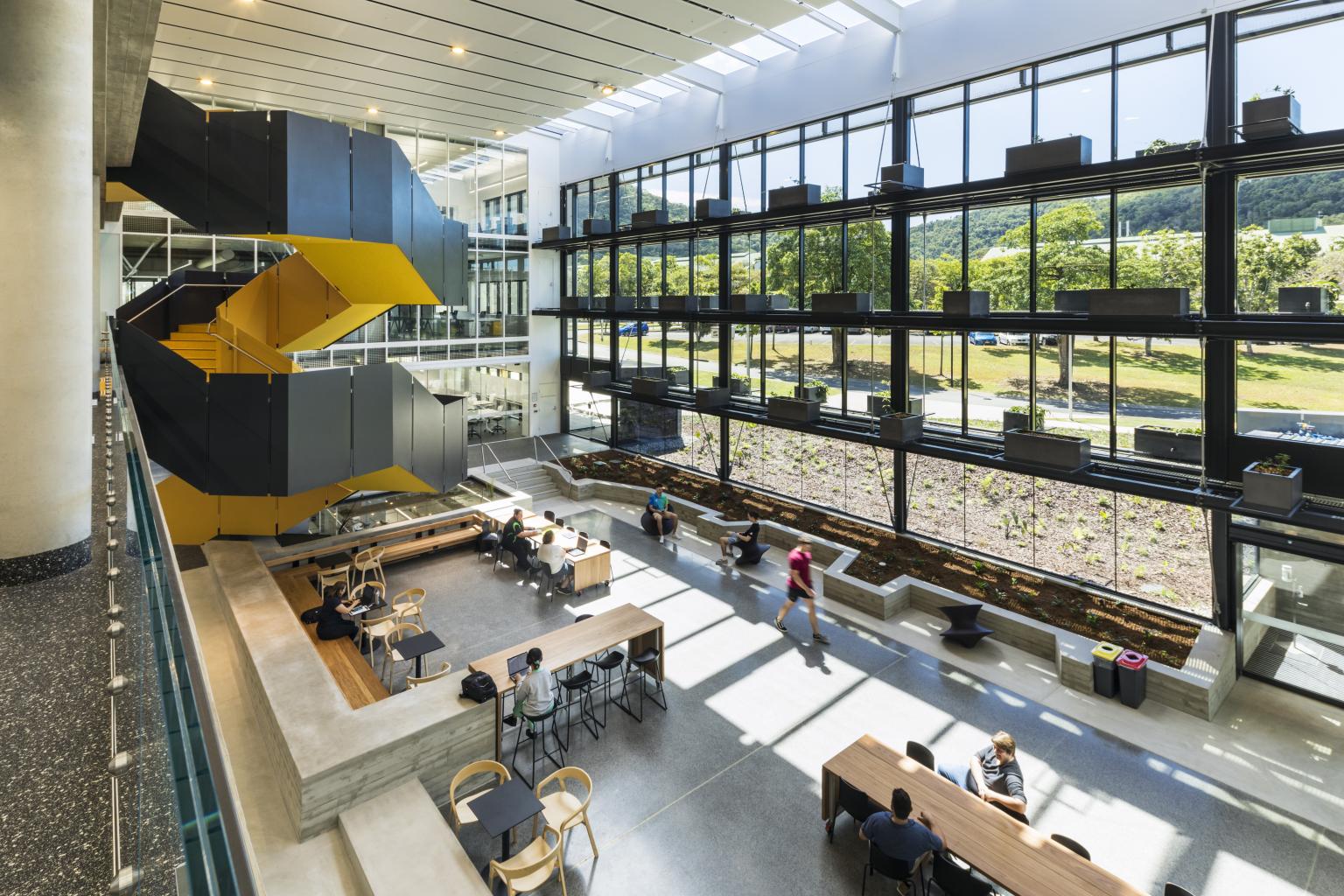
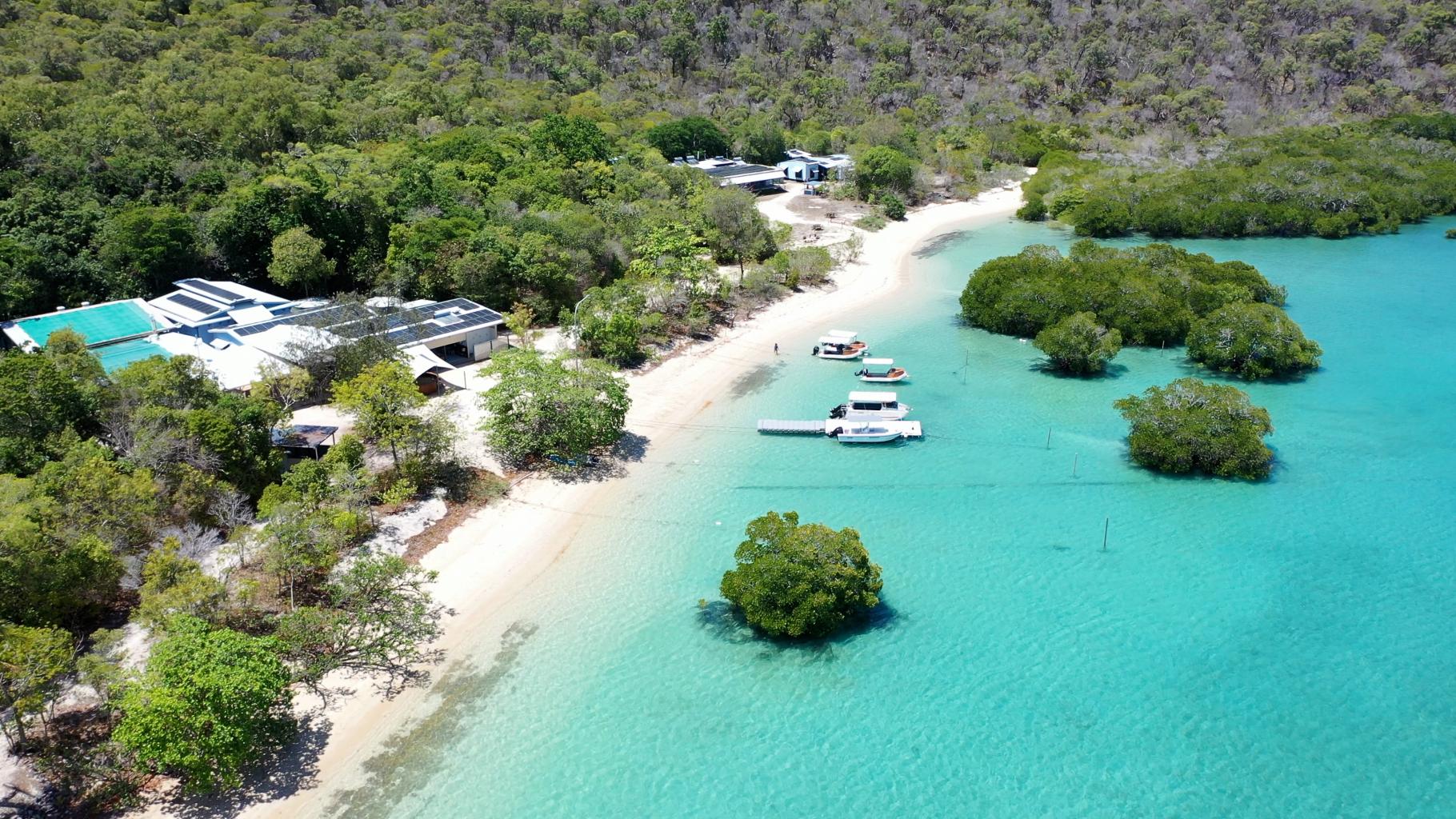
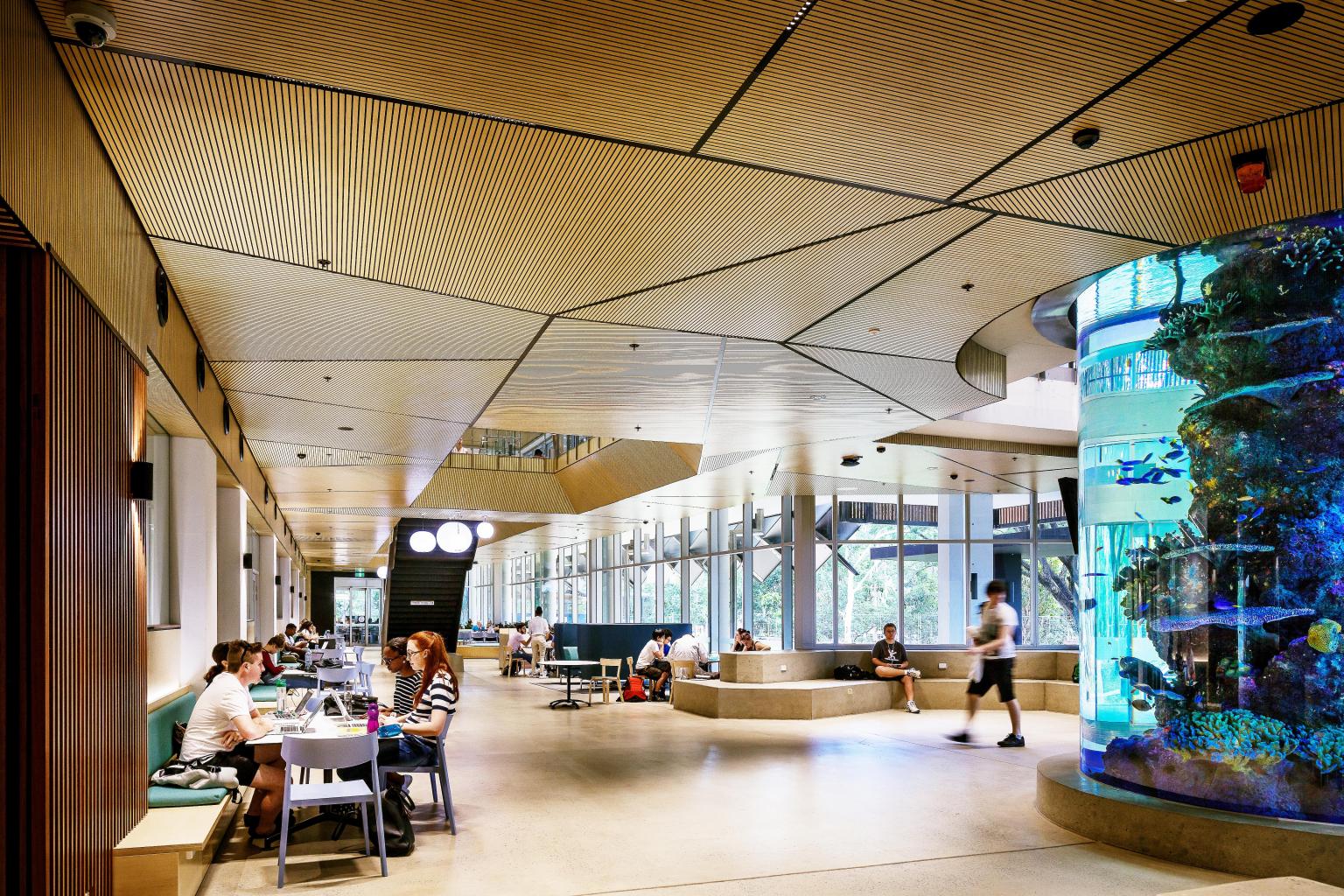
Fees
Bachelor Semester Abroad:
7,350 AUD to 12,900 AUD
Master Semester Abroad:
8,850 AUD to 14,740 AUD
Application Fee:
0 AUD
Additional Costs:
The 2022 Student Services and Amenities Fee (SSAF) for Study Abroad students is 157.5 AUD.
Valid: 2023-01-04 to 2024-08-01
City & Living
City features:
JCU offers 2 fantastic campuses in North Queensland: Townsville and Cairns.Providing a laid back tropical lifestyle, Townsville (population 229,000) is known as the capital of the north and offers a dynamic and cosmopolitan lifestyle with residents enjoying a sporting and cultural events, festivals and markets. Townsville is renowned for marine research and for being the home of the headquarters of Australia’s major marine research and management authorities: The Great Barrier Reef Marine Park Authority, The Australian Institute of Marine Science, and the Australian Bureau of Meteorology.
Cairns (population 150,000) is a modern, clean, safe and friendly tropical city with a relaxed atmosphere. Cairns is famous for its close proximity to the magnificent Great Barrier Reef and the World Heritage listed rainforests which border the city. It’s the place in Australia where there are two UNESCO World Heritage Sites located side-by-side.
Address in Townsville, Australia:
James Cook University Australia1 James Cook Drive,
Townsville, Australia
Population:
229,000Closest Airport:
(CNS) Cairns, (BNE) BrisbaneSightseeing:
The North and Far North regions of Queensland are unlike anywhere else in the world, and feature an extraordinary combination of reefs, rainforests, significant coastal, mountain and outback ecosystems, and indigenous centres.Shopping:
The coastal cities of Cairns and Townsville provide modern sporting, cultural, entertainment and shopping facilities and a relaxed lifestyle.How to get to university:
Public transportation, scooter, skateboard, bike, carHousing On-Campus:
250-489 AUD per week - Halls and colleges are within walking distance of uni and provide a range of living styles to suit your personality. There are a variety of living styles with a strong support structure offering residents quiet areas and single gender floors/units. Choose whether to cook for yourself or have all your meals cooked for you.Housing Off-Campus:
250-500 AUD per week Shared flats, rental properties, homestay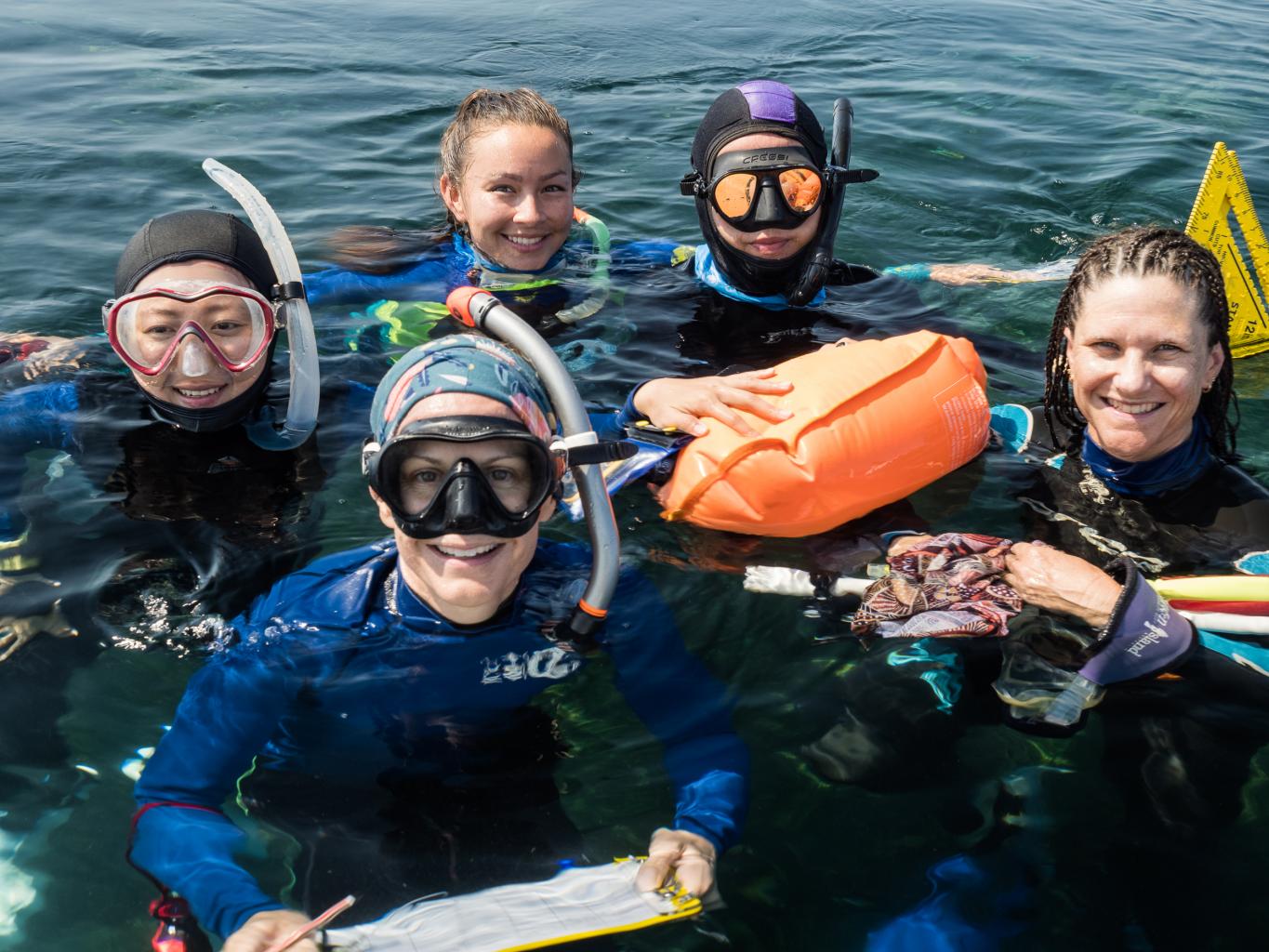
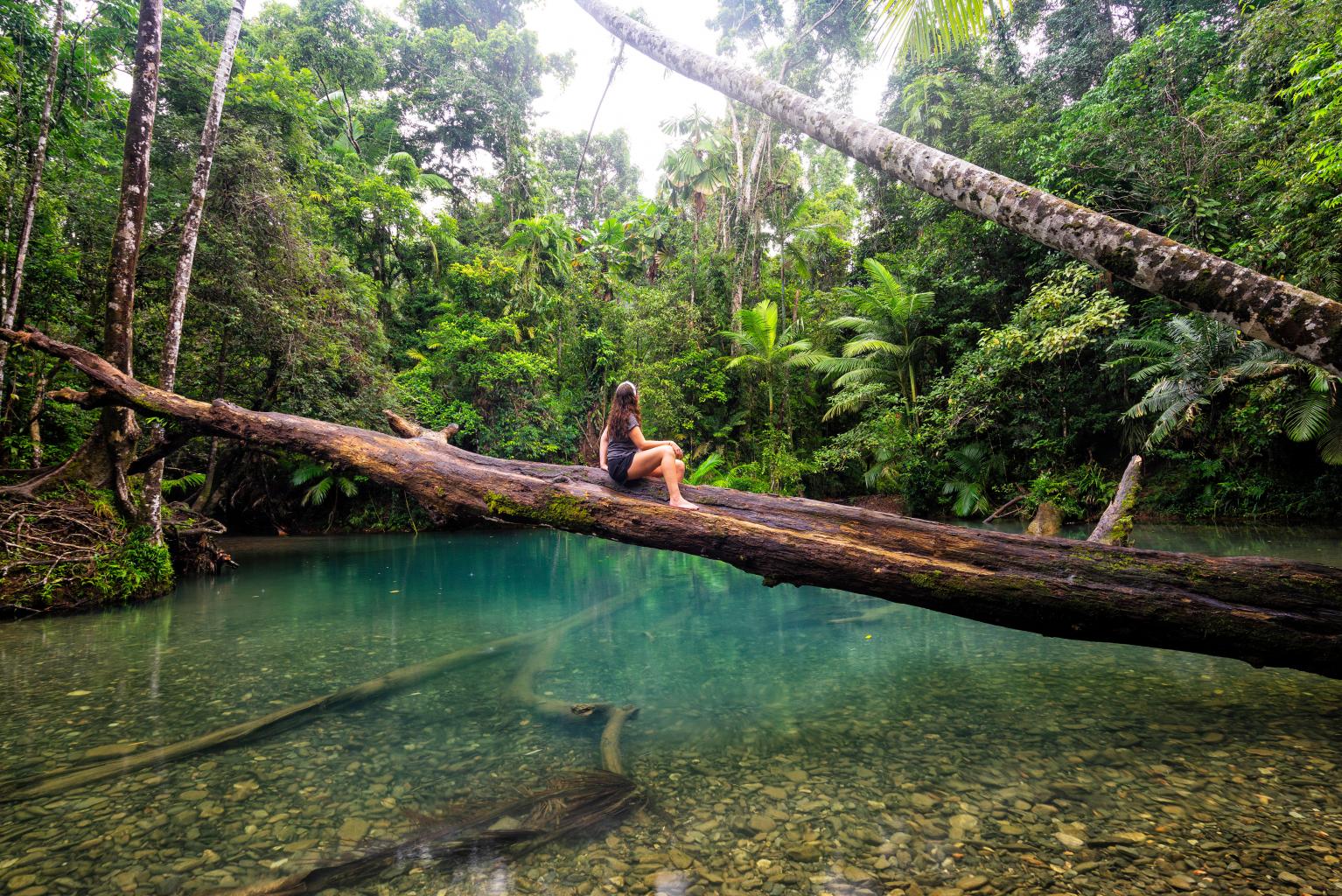
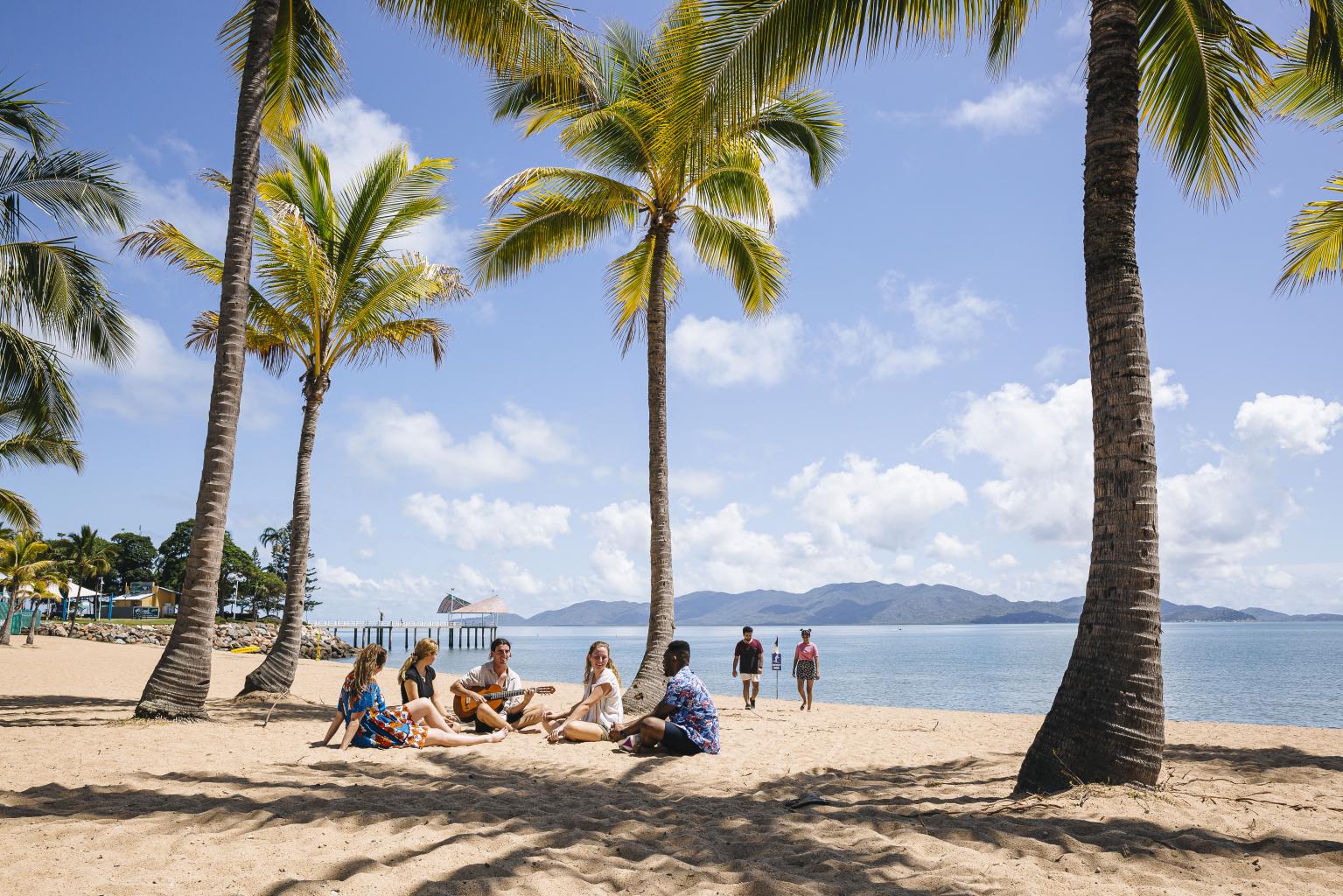
Applications open for Spring 2023 at JCU!
Are you ready for an unforgettable semester abroad in sunny Australia? Then it's time to get one step closer to your dream! For Spring 2023 students can now apply for their semester abroad at James Cook University (JCU) in Australia! For all business study abroad students, trimester 1 takes place from Feb-May. For all other fields of study, semester 1 runs from Feb-June. Furthermore, applications for on-campus accommodation are open now as well.
Semester Model or Trimester Model? That´s what you should know!
James Cook University in Townsville/Cairns is introducing more and more courses in trimester model. Until now, almost all programmes were offered in the semester model (February-July and July-December). For more flexibility and adaptation to international systems, courses from the Undergraduate and Postgraduate Business, Commerce, Tourism and Information Technology Courses are now offered in trimesters.
There are three trimesters each year which are each 10 weeks long.
Trimester 1: February-May
Trimester 2: May-August
Trimester 3: September-December
But beware: there are still courses that are a combination of semesters and trimesters.
More information on the Trimester Model can be found at https://www.jcu.edu.au/students/enrolment/trimester-faqs.
JCU a global ‘engine room’ for marine sustainability research
James Cook University has been recognised as among the world’s biggest contributors to marine conservation and sustainability research, according to a highly respected research index.
Developed by the top-tier science journal Nature, the “Nature Index” found Townsville was the world’s second most-prolific city for research related to the United Nations’ Sustainable Development Goal “Life below water (SDG14)”. The Index is based on research published in 82 high-quality scientific research journals between 2015 and 2020.
52 per cent of that local research came from JCU.
JCU Environmental Social Scientist and ARC Centre of Excellence for Coral Reef Studies Senior Research Fellow Dr Georgina Gurney said the university’s success in marine conservation and sustainability research was testament to the dedication and passion of its researchers.
“It’s exciting that Townsville is such an engine room for research on marine sustainability,” Dr Gurney said.
“We’re only just behind Beijing according to the Index, and ahead of much larger cities with many universities, like San Francisco and Boston.”
Dr Gurney said that tropical seascapes are a current focus of research on marine sustainability because “they are biodiversity hotspots and support the well-being of millions of people across the globe”.
“But people’s strong cultural, social and economic ties to these areas are under threat because the tropics are experiencing some of the greatest rates of environmental and social change, including due to climate change.”
“So research on tropical marine sustainability is particularly pressing and Townsville is a great place to do it,” she said.
“We’re located right next to the world’s largest coral reef, the Great Barrier Reef. Coral reefs are the ‘canary in the coal mine’ for assessing the impacts of climate change on the environment.”
JCU’s extensive collaborations with tropical nations, particularly in the Asia-Pacific, is a very important contributor to Townsville being a world-recognised hub for marine research, Dr Gurney said.
“The importance of meaningful collaborations between high- and low- or middle-income countries is increasingly recognised by conservation and sustainability researchers,” she said.
“Co-producing research with local scientists and practitioners is critical to decolonising science. It is also going to lead to high-quality research that is more likely to have real-world impact because not only do these people know their country best and have established relationships with local communities and other stakeholders, but diverse research teams lead to new solutions for sustainability problems.”
Dr Gurney has research partnerships with local practitioners and scientists in a number of tropical countries, including with Dr Sangeeta Mangubhai, who directs the Fiji programme of the Wildlife Conservation Society (WCS), an international non-profit organisation. Together with other collaborators they developed a monitoring framework, which aims to identify how coral reef conservation can support conservation outcomes and the well-being of coastal communities.
The framework has since been implemented by WCS and its partners in more than 130 communities in seven countries across Africa, Asia and the Pacific.
Most Popular News:
The best time of your life - Gap Year at UNCW!
You have finished high school and don't know exactly what you want to study? The UNCW offers you a wide range of courses from over 120 fields of study - ideal for orientation after school without having to decide directly on a specific course of study. After successfully completing your gap year, you will receive your official transcript and can ideally transfer the credits you earned during your gap year to your future university in Europe - or you can decide to continue your studies in the U.S. and directly enter the second bachelor year at UNCW. So what are you waiting for? Get a taste of university life in the USA and take one step closer to your dream course of study!
Start your semester abroad in Seattle
Are you looking for the perfect spot for your study abroad semester? City University of Seattle is offering you great programs on a quarterly basis! For those of you seeking to combine studying with international experiences and company visits (e.g. Amazon, Starbucks, Microsoft, Expedia.com) we suggest to apply for our summer programs. You can join one of our two sessions and add a quarter in order to receive more than 30 ECTS in just 4,5 months! Reach out to World of Students for further information or join one of our virtual presentations.
Arriving in Canada
Before classes start, make sure to explore the vibrant city of Vancouver! Apart from the well-known tourist spots, try some of the delicious food, enjoy a bike tour through Stanley Park or watch a Majour League Soccer game of the Vancouver Whitecaps before taking the ferry or plane over to Vancouver Island to start your classes at VIU.
Fairfax Lookout in Manly
Our students love the Fairfax Lookout on the North Head!
Only a couple of minutes from the ICMS campus in Manly you can watch stunning sunsets over Sydney. At the Fairfex lookout students spend a great time together with their international friends, eating pizza and listening to music while watching the Sydney harbour. You may even see one of the whales passing by the coast.
General rating:
(0.0)- ★★★★★0
- ★★★★☆0
- ★★★☆☆0
- ★★☆☆☆0
- ★☆☆☆☆0
Recommendation:
(0.0)- ★★★★★0
- ★★★★☆0
- ★★★☆☆0
- ★★☆☆☆0
- ★☆☆☆☆0
University service:
(0.0)- ★★★★★0
- ★★★★☆0
- ★★★☆☆0
- ★★☆☆☆0
- ★☆☆☆☆0
On-campus housing:
(0.0)- ★★★★★0
- ★★★★☆0
- ★★★☆☆0
- ★★☆☆☆0
- ★☆☆☆☆0
Academic experience:
(0.0)- ★★★★★0
- ★★★★☆0
- ★★★☆☆0
- ★★☆☆☆0
- ★☆☆☆☆0
No reviews posted yet.
Erfahrungsbericht Griffith College Dublin - by Jessi L.
Ein Semester im Ausland bietet sowohl persönlich, als auch beruflich viele neue Perspektiven und Erfahrungen. Zum einen wollte ich meine Fähigkeiten im Gebrauch der englischen Sprache verbessern und meinen Wortschatz erweitern. Aber es war mir auch wichtig mich einer solchen Herausforderung zu stellen, um selbstständiger und spontaner zu werden. Ein „normales Studentenleben“ einmal zu erleben ist gerade für einen DH Studenten sicher erstrebenswert. Da an der DH die Zeiten und Kurse sehr streng gelegt sind, bietet ein Studium im Ausland die Möglichkeit auch einmal die etwas flexiblere und eigenständigere Art des Studierens an einer „normalen“ Universität zu erfahren. Ich habe mich für das Griffith College in Dublin entschieden und diese Entscheidung auch nicht bereut. Vorbereitung des Aufenthalts Die vorläufige Anmeldung des Auslandsemesters erfolgt im Mai des Jahres vor dem geplanten Semester im Ausland. Bis zur endgültigen Anmeldung bleibt jedoch Zeit bis Herbst. Am besten informiert man sich im Voraus auf der Website des Auslandamts der DHBW und schaut sich die Website des Griffith Colleges einmal an. Zudem hatte ich einen Termin mit einer Mitarbeiterin des Auslandsamts, welche mir sehr dabei geholfen hat die richtige Uni im Ausland zu finden. Außerdem hat sie mir viele wichtige Informationen bezüglich des Anmeldeverfahrens und benötigter Dokumente gegeben. Bei Fragen während des Bewerbungsprozesses konnte ich mich auch immer an Florian Burkhardt wenden. Er ist der „German Office Manager“ des Griffith College in Deutschland und kümmert sich gerne und schnell um die Anliegen der zukünftigen Studenten. 2 Eines der benötigten Dokumente zur Vorbereitung ist das Learning Agreement. Dieses wird zwischen dir und der DH abgeschlossen. Hierbei geht es darum im Voraus zu schauen welche der Kurse, die man in Deutschland verpasst, man mit welchen Kursen am Griffith College abdecken kann. Das Learning Agreement hilft also vor Ort bei der Kurswahl und ist eine Sicherheit, dass die Kurse im Ausland auch an der DH angerechnet werden. Im Bereich BWL- DLM ist Herr Prof. Dr. Augenstein für das Agreement verantwortlich und hilft gerne bei Fragen. Eine Liste mit den in Dublin angebotenen Kursen kommt allerdings erst nach der endgültigen Anmeldung am Griffith College. Allerdings ist es gerade für den Studiengang BWL- DLM immer recht einfach alle Kurse abzudecken und oftmals bleibt sogar noch eine Wahlmöglichkeit. Ebenfalls zur Vorbereitung des Semesters in Irland gehört auch die Wohnungssuche. Hier gibt es generell zwei Möglichkeiten: ein Zimmer im Studentenwohnheim auf dem Campus oder eine private Bleibe. Insgesamt muss man mit recht hohen Mieten im Vergleich zu Deutschland rechnen. Ich habe mich für eine private Bleibe in Dublin entschieden. Hierbei war mir besonders die Website www.daft.ie behilflich. Hierzu gibt es aber auch viele Tipps auf der Website des Colleges. Wenn man diesen Weg wählt ist es wichtig noch keine Verträge von Deutschland aus zu unterschreiben oder gar Zahlungen im Voraus zu leisten. Da Dublin sehr international ist, suchen viele Leute aus dem Ausland Wohnungen, was leider auch Missbrauch und Betrug mit sich bringt. In Irland ist es allerdings so, dass man, schnell Wohnungen und Zimmer anschauen kann und, wenn man eine Zusage hat, innerhalb von 24h auch dort einziehen kann. Viele Iren und Irinnen die alleine in Häusern oder großen Wohnungen leben vermieten dort ein Zimmer unter und man lebt sozusagen in einer WG. So habe ich auch bei einer netten älteren irischen Dame gewohnt, mit der ich mich sehr gut verstanden habe und die mir auch einmal ausgeholfen hat, wenn ich Tipps oder gar ein Auto brauchte.
Mein Auslandsjahr am Griffith College in Dublin, Irland - by Jonas R.
Irland bietet viele tolle Landschaften und eine Menge an Aktivitäten in und um Dublin. Die Stadt kann man meiner Meinung nach am besten zu Fuß erkunden. Besonders sehenswert in Dublin und ganz Irland fand ich die Grafton Street Area, den Phoenix Park, die Cliffs of Moher, den Wild Atlantic Way, den Giants Causeway und den Ring of Kerry. Etwas kleinere Ausflüge von Dublin aus können z. B. nach Howth oder Dun Laoghaire unternommen werden. Außerdem gibt es einen sehr schönen Cliffwalk zwischen Brey und Greystones. Oder man macht einen Ausflug zum Strand der Dublin Bay bei Sandymount. Von dort aus kann man auch zum Poolbeg Leuchtturm spazieren. Griffith College Das College liegt im Süden von Dublin, ungefähr 20 bis 25 Minuten zu Fuß vom Stadtkern entfernt. Eine Bushaltestelle befindet sich in direkter Nähe zum College. Ich persönlich rate allen Studierenden, die Einführungsveranstaltungen zu Beginn des Semesters zu besuchen. Hier werden wichtige Informationen zum Studienalltag, zum College selbst und zum Leben in Dublin weitergegeben. Das International Office klärt die Incoming Students zudem über die Beantragung der sogenannten PPS Number auf. Diese muss beantragt werden, wenn man einen Abschluss von einem College in Irland erhalten möchte (IB). Man braucht diese allerdings auch, wenn man sich vor Ort einen Nebenjob suchen möchte. Über die beiden Semester belegt man insgesamt drei Hauptfächer, das semesterübergreifende Modul „Business Plan“, sowie zwei Wahlfächer pro Semester. In den ersten beiden Wochen je Semester hat man die Möglichkeit, alle Vorlesungen der Wahlfächer zu besuchen. Spätestens nach diesen beiden Wochen muss man sich dann für zwei Module entscheiden. Was hierbei sehr schade war: es werden leider nicht alle Kurse angeboten, die anfangs bei der Bewerbung im Modulhandbuch zur Auswahl standen. In meinem zweiten Semester z. B. waren viele Studierende mit dem Fächerangebot unzufrieden. Auf Anfrage und Bitte wurde aber ein Kurs dann doch noch angeboten und eine Dozentin dafür organisiert. Bei solchen Angelegenheiten ist das College sehr verständnisvoll und bemüht. Die Studienweise in Irland ist anders im Vergleich zu Deutschland. Angefangen bei wöchentlich längeren Vorlesungszeiten (vier Stunden für Hauptfächer, drei Stunden für Wahlfächer und eine Stunde Tutorium in jedem Fach) über einen höheren Aufwand unter dem Semester (Assignments in jedem Fach) bis hin zu dreistündigen Prüfungen (essay style) am Semesterende. Die Hausarbeiten stellten zu Beginn eine große Herausforderung dar, da wir solche nie zuvor an der Hochschule Landshut schreiben mussten. Hierbei ist ein gutes Zeitmanagement wichtig. Mit der Zeit lernt man aber, worauf es ankommt und wie man die Recherchen besser angeht. Die Prüfungen sind meiner Meinung nach gut machbar, wenn man die Vorlesungen und Tutorien regelmäßig besucht. Man weiß dann, worauf es den Dozenten ankommt. Skripte werden gebunden ausgeteilt und den Vorlesungsstoff findet man zudem auf der Online-Plattform Moodle. Die meisten Professoren haben den Stoff in der letzten Vorlesung noch eingegrenzt. In der Prüfung werden sechs offene Fragen gestellt, von denen man vier in drei Stunden beantworten muss. Die Antwort wird in Form von Aufsätzen verlangt. In den meisten Fächern setzt sich die Endnote aus 60% Prüfungsnote und 40% Assignmentnote zusammen. Alternativ gibt es noch die Gewichtungen 80%/20% und 50%/50%. In einigen Fächern wird zusätzlich eine Präsentation der Hausarbeit verlangt. Der Business Plan kann an der Hochschule Landshut als Bachelorarbeit angerechnet werden. Hierbei setzt man eine Geschäftsidee um und gründet ein fiktives Start-up Unternehmen. Diese Aufgabe erschien am Anfang aussichtslos und sehr aufwändig. Dass es viel Aufwand ist kann ich bestätigen, aber wenn man seine Zeit gut plant und kontinuierlich daran arbeitet kommt man gut damit klar. Als erstes reicht man einen Vorschlag zur Geschäftsidee ein. Daraufhin werden den Studierenden sogenannte Supervisor zugeteilt. Da diese aus unterschiedlichen Bereichen kommen, hatten sie auch jeweils andere Anforderungen und Erwartungen, was schließlich auch manchmal zu gefühlt unfairen Bewertungen führte. Mein Supervisor war sehr kompetent und hilfsbereit – andere Studierende hatten nicht so viel Glück und wurden weniger unterstützt. Ich persönlich fand es besonders hilfreich, dass man in mehreren Etappen einzelne Entwürfe einreicht, die dann korrigiert werden. So hat man mehrere Deadlines einzuhalten und der Aufwand wird über das Jahr hinweg verteilt. Durch das Feedback kann man die Entwürfe verbessern und weiter ausbauen und dann im Enddokument verwenden. Jedes Semester gibt es die sogenannte Readingweek welche zum Schreiben von Assignments genutzt werden kann. In dieser Woche finden keine Vorlesungen oder Tutorien statt. Falls man diese extra Zeit nicht benötigt um Hausarbeiten zu schreiben, kann man sie gut für Besuche oder Reisen nutzen.
Strapazen, Schloss und Strand: Erste Eindrücke Auslandssemester - by Jessi L.
Full content of: Improvement suggestions/Feedback, What did you enjoy most?, How were your classes?, Were you satisfied with the organization of your study abroad term? Full content of: Improvement suggestions/Feedback, What did you enjoy most?, How were your classes?, Were you satisfied with the organization of your study abroad term?
Strapazen, Schloss und Strand: Erste Eindrücke Auslandssemester - by Jessi L.
Full content of: Improvement suggestions/Feedback, What did you enjoy most?, How were your classes?, Were you satisfied with the organization of your study abroad term? Full content of: Improvement suggestions/Feedback, What did you enjoy most?, How were your classes?, Were you satisfied with the organization of your study abroad term?
Strapazen, Schloss und Strand: Erste Eindrücke Auslandssemester - by Jessi L.
Full content of: Improvement suggestions/Feedback, What did you enjoy most?, How were your classes?, Were you satisfied with the organization of your study abroad term? Full content of: Improvement suggestions/Feedback, What did you enjoy most?, How were your classes?, Were you satisfied with the organization of your study abroad term?
Schloss, Strapazen und Strand: Erste Eindrücke Auslandssemester - by Jessi L.
Full content of: Improvement suggestions/Feedback, What did you enjoy most?, How were your classes?, Were you satisfied with the organization of your study abroad term? Full content of: Improvement suggestions/Feedback, What did you enjoy most?, How were your classes?, Were you satisfied with the organization of your study abroad term?
Wir beraten dich gerne auch persönlich unter:
+ 49 (0) 6151 6274 8213
Du träumst von einem Studium im Ausland? Unser Team berät dich gerne kostenlos und unverbindlich zu deinen Studienmöglichkeiten.
Jetzt Informationen anfordern oder mit uns Kontakt aufnehmen.

